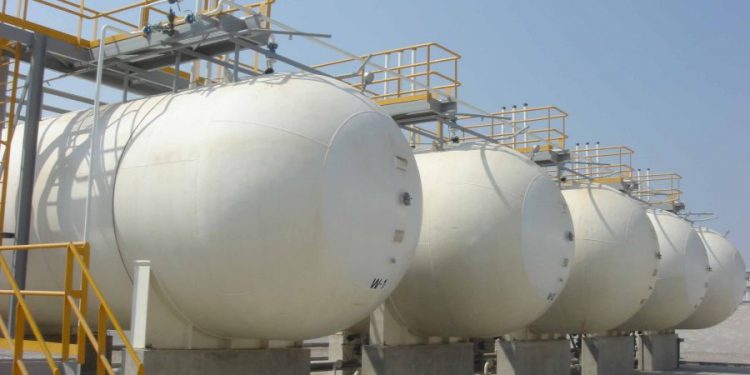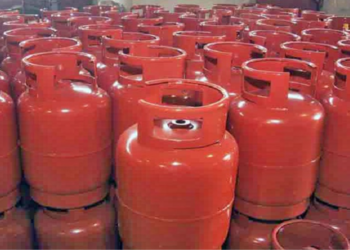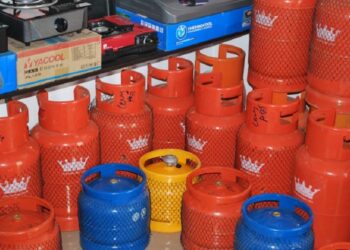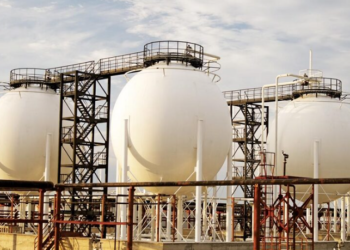- LPG supplies from large gas carriers in Nigeria range from 13% to 20%, as stated by Solomon Asogba, Lead Business Intelligence Analyst at HydroCIS.
- Sahara Group recently acquired two LPG carriers valued at $142 million, potentially increasing Nigeria’s LPG capacity.
- The properties of these large gas carriers (LOA – 180 to 230 meters; Draft – 8 to 10 meters) might pose challenges in delivering to the domestic market, leading to the possibility of diverting them for regional trade and international exports, according to Asogba’s projection.
Liquefied Petroleum Gas (LPG) supplies from large gas carriers in Nigeria have been between 13 to 20%.
This is according to Solomon Asogba, the Lead Business Intelligence Analyst at HydroCIS (Hydrocarbon Information Services), a hydrocarbon data provider.
Asogba said this while speaking to Nairametrics about the recent acquisition of two large LPG carriers by Sahara Group.
Earlier this month, Sahara Group announced that it had ordered two LPG carriers valued at $142 million, slated for delivery in 2025 and 2026.
Some industry experts have said that the acquisition could increase Nigeria’s LPG capacity, especially now that more Nigerians are interested in alternative energy sources following the increase in petrol pump prices. However, there could be a challenge to increasing local LPG supply.
According to Asogba, the properties of the vessels could pose a challenge to domestic market delivery.
This is because the size of large gas carrier vessels is usually between 180 to 230 meters, which might be difficult to berth in Nigeria’s coastal terminal jetties.
He said that HydroCIS projects that the Sahara Group LPG carriers may not really be used for the local markets but may end up being diverted for regional trade and international exports.
He said:
- “In addition to the analysis, most of the LPG supplies into the country by the vessels in the category of the large gas carrier, has been between 13 to 20%. This is one of the reasons why the large gas carriers might not have so much impact in the Nigerian local market.”
Nigeria lacks gas processing/storage facilities
Asogba told Nairametrics that gas processing in Nigeria is mainly dependent on gas processing plants and it is quite unfortunate that all the country’s refineries are currently out of commission.
However, to increase gas processing capacity in the country, he said Nigeria needs investments in infrastructure. According to him, one of the major challenges facing gas processing players in Nigeria has been downtime, as well as indiscriminate taxes, and levies.
If these are managed effectively, investments will increase in the space and the country can have more gas processing infrastructure.
Presently, in terms of infrastructure, Asogba said Nigeria does not have enough facilities for gas processing/storage space.
However, he mentioned that some companies are taking up the challenge to increase local capacity, like Ardova Plc, which is currently constructing its 20,000 metric tons (MT) gas storage facility in Lagos state.
LPG projections for 2023 and 2024
Asogba said that HydroCIS analysts expect 2023 to be a year of recovery in the LPG space. He also said that by the end of 2023, Nigeria should have up to 1.3 million tons, given the 15% annual growth rate.
He also expects that by 2024, the country should be doing up to 1.5 million tons in LPG supply.
According to Asogba, the removal of fuel subsidies by the present administration has increased interest in the conversion of vehicles and generators to LPG and other gas variants.
This interest, according to him, will increase demand in the country, expanding the market further in 2023 and 2024. This is if there are no government policies that will negatively impact the Nigerian gas sector,
LPG price decline
12.5kg Liquefied Petroleum Gas refill prices fell by 4.35% on a month-on-month basis from N9,537.89 in May 2023 to N9,123.25 in June 2023.
Meanwhile, on a year-on-year basis, 12.5kg refill fell by 3.82% from N9,485.91 in June 2022.
Also, a 5kg cylinder refill of Liquefied Petroleum Gas decreased by 6.71% on a month-on-month basis from N4,360.69 recorded in May 2023 to N4,068.26 in June 2023.
Meanwhile, on a year-on-year basis, 5kg refill decreased by 3.56% from N4,218.38 in June 2022.
This is according to the latest LPG price watch report from the National Bureau of Statistics (NBS). Asogba points out that the decrease in LPG prices can be attributed to the resource being benchmarked on an international level.
However, soon, Nigerians should anticipate a possible increase in LPG prices due to the seasonal changes in the international market.
Fear of rising gas prices due to generator/vehicle conversion to gas
Speaking on the rising interest of Nigerians in the conversion of their generators and vehicles to run on LPG and other gas forms, Asogba said that it is rational for people to anticipate a rise in local gas prices because of increased conversions.
Following Nairametrics’ series on gas conversions in June 2023, there have been increased requests for local technicians to facilitate conversions for households and businesses across the country. According to Asogba, demand and supply forces will eventually come to play in local gas demand through increased prices.
He said:
- “However, the Nigerian LPG gas that is deregulated is not operating in isolation of what is happening in the global market. Just like we have seen a current price decline due to a price fall in the international market. So, no matter what happens here, the international market will still largely define local prices.”

















